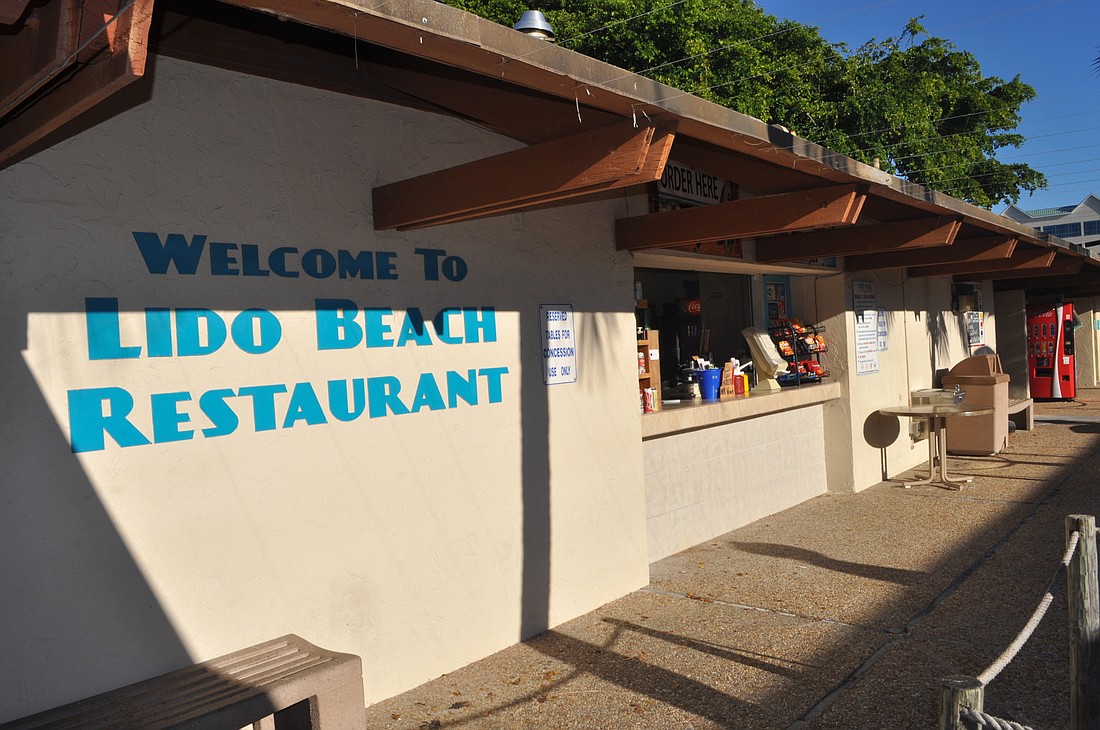- April 19, 2024
-
-
Loading

Loading

After the city decided to lease the Lido Beach pool and pavilion to a private operator, residents opposed to the decision wondered how the agreement came together to begin with.
In November, the city approved a deal with Lido Beach Redevelopment Partners LLC, a group led by Daiquiri Deck co-owner Troy Syprett. The group agreed to renovate and maintain the pool and pavilion area. In return, it gained permission to operate a new Tiki bar and a 200-seat open-air restaurant on the footprint of the existing dining area.
The lease will run for up to 30 years. Rent starts at $80,000 a year and scales up to $100,000 or higher by year three, depending on the revenue generated.
Critics argued the city wasn’t getting the maximum utility out of the property. If the city wasn’t going to operate the pool and pavilion itself, some residents believed officials should have negotiated more favorable terms.
As a result, the Coalition of City Neighborhood Associations launched a committee researching the city’s procedures for leasing properties to outside entities. In May, that committee shared its findings — along with a series of recommendations for revising the way the city handles its land.
The group was troubled by perceived inconsistencies when it came to the city’s leases. According to their research, the city leases 51 parcels to both for-profit and nonprofit entities. The structure of those leases differs from agreement to agreement.
In cases such as the Lido pavilion, residents fear the for-profit operation isn’t paying its fair share. They also worry the city is too quick to search for public-private partnerships when questions of funding arise, taking land out of the hands of local government.
“We don’t know how to have city maintenance paid for, and we don’t know how to have capital improvement for parks paid for,” said Mary Anne Bowie, chairwoman of the CCNA lease committee.
For nonprofit groups, which often have nominal leases of $1 per year, residents pointed out that some organizations are not obligated to provide space for other community nonprofits — but they are allowed to sublease their building without city approval.
"Missing is an overseer who would supervise consistent evaluations, decision-making, terms, processes and procedures," the report stated.
In an emailed statement, the city acknowledged receipt of the CCNA recommendations and indicated it would talk about them with residents.
“We look forward to the opportunity to meet with CCNA representatives to discuss the city’s thoughtful, community-minded approach to leases,” the statement said.
City spokesman Jason Bartolone said “each lease is different and handled on a case-by-case basis.” The city did not provide further comment.
During their review of leases, the residents also discovered a broader issue they wanted to ask the city about. According to their research, the city owns more than 250 real estate parcels. Bowie didn’t see a coherent strategy for capitalizing on the value of that property.
The group proposed creating a designated staff member to serve as the director of public lands. The report suggested that person should responsible for advocating for the public interest when the city was negotiating a lease with an outside party.
On May 5, CCNA voted to support the recommended changes the committee presented. At the May 7 City Commission meeting, Commissioner Jen Ahearn-Koch asked the board to hold a discussion in the future regarding the resident report. Staff said it would work with CCNA to review the feedback.
The residents involved with the lease committee are optimistic their input will change the way the city does business.
“We don’t have any real organized way in the city of Sarasota of managing public lands,” Bowie said.